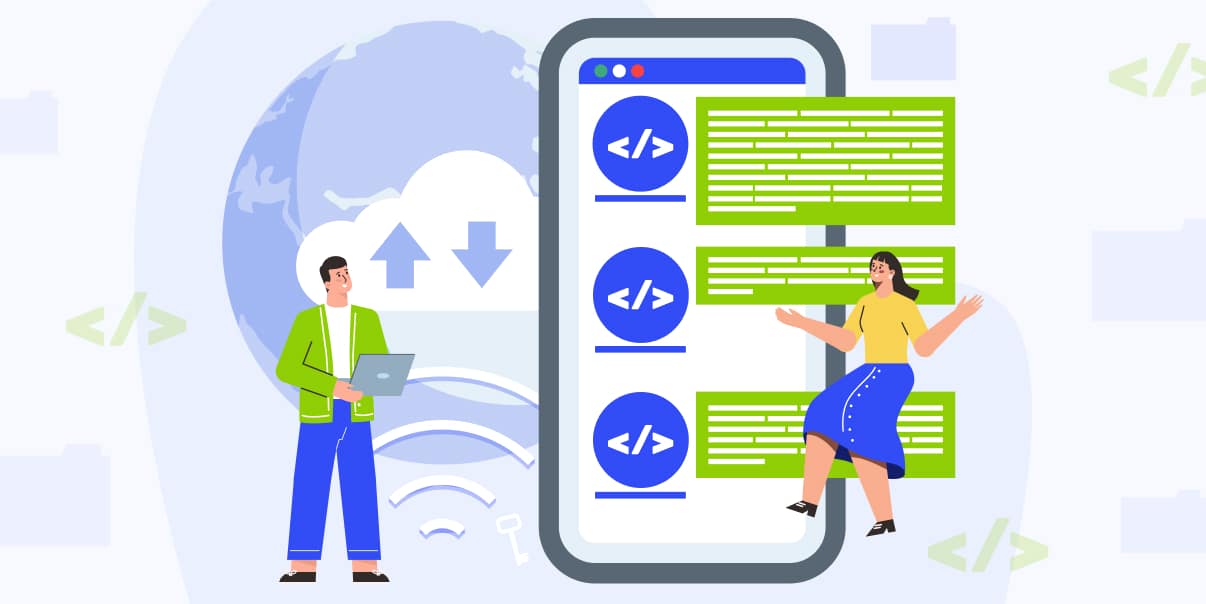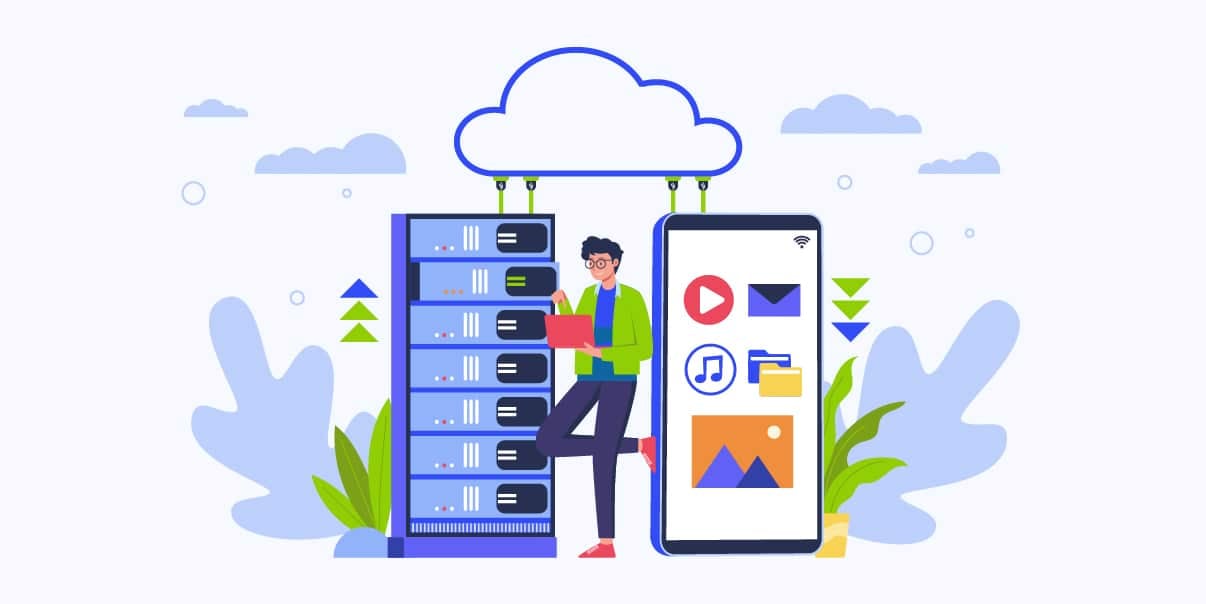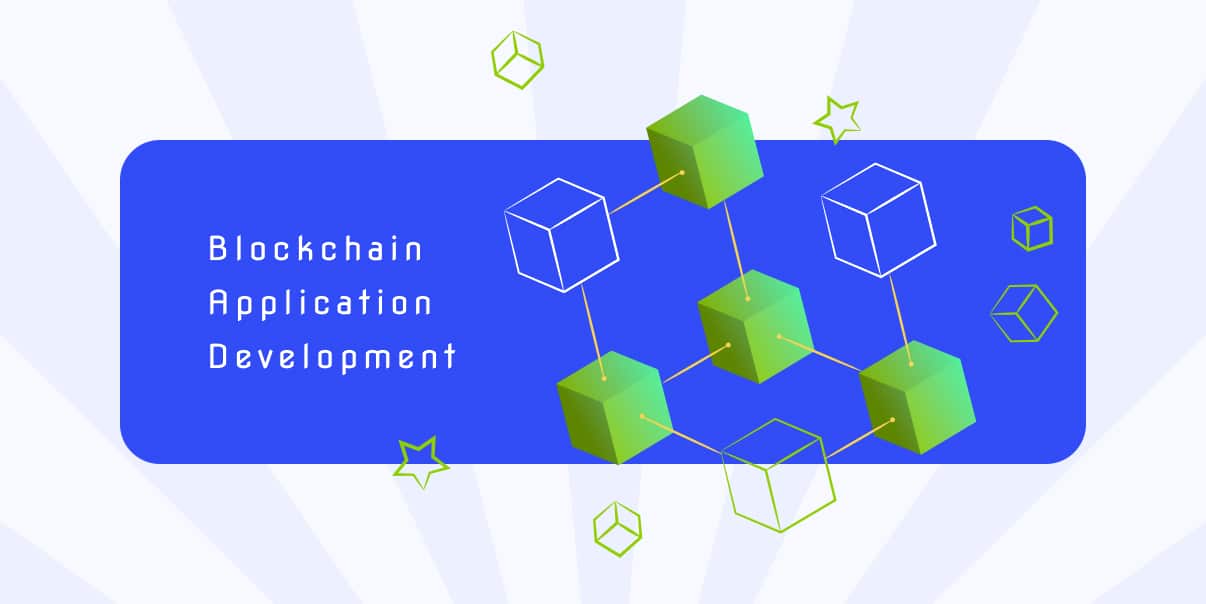Cloud Mobile App Development: A Blueprint for Success

Cloud app development is an increasingly popular and integral part of software design in the modern world. By 2023, experts predict the global cloud mobile market to reach $74.25 billion. This growth shows the need for businesses to create effective cloud-based apps.
Moreover, developing cloud applications offers multiple benefits, like scalability and security. You also gain access to powerful tools and frameworks that can simplify the development processes.
This article will explain cloud app development and how to use it for your business advantage.
Understanding Cloud Infrastructure
Cloud-based app infrastructure combines computers, networks, and storage on the internet. Its purpose is to store data and provide easy access to applications or services.
Moreover, cloud app infrastructure is perfect for creating mobile apps. With the right cloud services, you can complete projects faster and stay ahead of competitors. It offers access to all the new technology and tools available today, helping you make awesome apps quickly. So, understanding cloud app infrastructure and picking the right one is essential.
Types of Cloud Infrastructure
There are three main types of cloud app infrastructures. You can create a public or private cloud for your business. But, some companies also prefer using hybrid cloud infrastructure.
Here are the three types of cloud app infrastructure:
- Public cloud. Third-party providers commonly own and operate a public cloud. Here, many customers are simultaneously using and sharing resources.
- Private cloud. A private cloud is dedicated to one organization or company only. It offers more control over security. But, it is usually more expensive than public cloud solutions.
- Hybrid cloud. A hybrid cloud combines the benefits of public and private clouds. It allows users to access resources from both. It also gives users more flexibility in terms of control and cost.
Choosing the Right Cloud Infrastructure
Choosing the right cloud app infrastructure depends on your needs and budget. They have different features and capabilities, so carefully considering each is essential.
Here’s how to pick a proper mobile apps infrastructure:
1. Identify your needs. Consider what application you’re developing and what features you need to support it.
2. Research the different types of cloud-based app infrastructures available. Consider which one will work best for you and your budget.
3. Test out the cloud-based app infrastructure before committing. You should conduct tests to ensure the app infrastructure supports your app and its features.
4. Evaluate security measures. Make sure your data is secure on the cloud-based app infrastructure you choose.
Benefits of Using Cloud Infrastructure
Using cloud-based app infrastructure for app development has several benefits. It can help speed up the development process and make it easier to manage applications.
- Cost Savings. Cloud apps help businesses save on costs since there is no need to purchase hardware and software upfront.
- Scalability. It allows companies to scale up or down depending on their needs quickly.
- Flexibility and Efficiency. Cloud apps make it easier for businesses to deploy and manage their applications.
- Security. Cloud-based apps help protect data from malicious attacks and unauthorized access.
Cloud Mobile App Design and Development
Cloud mobile app design and development gives companies access to the latest technology. This strategy helps businesses create better experiences for their users. With this approach, companies can create more complex apps with many features.
Design Considerations
When designing mobile and web applications, you must remember several key considerations. These include user experience (UX) design, interface design, and navigation.
User Experience Design. This process involves creating an intuitive app experience for users. It focuses on how people interact with the application. UX designers also consider things like usability, accessibility, and overall appeal.
Interface Design. Here, developers create an appealing user interface for the application that’s easy to use. Interface designers consider things like colors, fonts, images, and buttons.
Navigation. Navigation allows users to move around the app and easily find what they want. It should be intuitive and provide users with a clear path to their destination.
Choosing a Cloud-based Mobile App Development Platform
Developers are turning to cloud app development platforms as cloud technology becomes prevalent. It helps them create apps you can use on a mobile device.
So, it is essential to choose the right mobile application development platform. It must provide developers with everything to build, test, debug, and deploy applications. It should allow you to maintain and update your apps as well.
Here are some of the popular cloud app development platforms that support cloud technology:
- Microsoft Azure
Microsoft Azure is a cloud app platform that lets developers create, deploy, and manage apps quickly and easily. It supports languages, including .NET, Java, Node.js, PHP, and Python. This way, you can choose the one that suits your needs.
Azure also provides access to powerful tools like Azure Active Directory. It helps in building a secure authentication system for your app. With push notifications and scalability options, your app will perform at its best despite heavy user traffic.
- Xamarin
Xamarin is a cross-platform app development framework that supports .NET. It provides developers with everything they need to create native iOS, Android, and Windows apps.
Moreover, Xamarin’s cloud services are famous for scalability. So, you can use the same codebase for your applications across multiple devices. That means you don’t have to code the same app multiple times for different platforms. Plus, Xamarin cloud provides secure authentication and push notification services.
- React Native
React Native allows developers to create cross-platform cloud apps. It uses JavaScript and React, an open-source library developed by Facebook.
Moreover, React Native is ideal for improving the scalability of your development process. It also provides access to powerful tools like UI components and API integration. Plus, developers can use the same codebase to develop mobile apps for multiple platforms.
Cross-Platform Development
Cross-platform development is creating apps for multiple operating systems using a single codebase. It is beneficial because it increases efficiency and reduces cost. Developers can use the same codebase for different platforms without writing separate code.
Integrating APIs
APIs (Application Programming Interfaces) allow developers to access data from external sources. Then, they integrate it into their applications. APIs provide a secure connection between the application and the data source, ensuring the data remains private. They also make it easier for developers to add features without writing extra code.
Here’s how you can integrate APIs into your cloud mobile app
1. Research the available APIs and identify which ones suit your app.
2. Test the APIs to ensure they work with your app.
3. Create a secure connection between the application and the API provider. To do this, you can use tokens or other authentication methods.
4. Use the data from the API in your application and make sure it is correctly displayed and updated.
5. Test the application to make sure everything works as expected.
Mobile Backend as a Service (MBaaS)
Mobile Backend as a Service (MBaaS) is an all-in-one solution for backend development. It offers cloud storage, authentication, push notifications, and analytics. MBaaS makes it easier to develop mobile apps since you don’t need to create backend codes anymore.
MBaaS Providers
There are several MBaaS providers available today. They can help you quickly build, deploy and manage mobile apps. Some of the popular ones include:
- Google Firebase
- AWS Mobile Hub
- Azure App Service
- IBM Cloud
Choosing the Right MBaaS Provider
When choosing an MBaaS provider, it is essential to consider several factors. These include cost, scalability, security, and support. It is also a good idea to compare the different providers before deciding.
1. Security and privacy measures. Make sure the MBaaS provider offers robust security protocols to protect user data.
2. Scalability options. Your cloud service providers should allow you to scale up and down depending on your needs.
3. Pricing plans. Choose a provider that offers pricing plans that fit within your budget.
4. Ease of use. The provider should have an easy-to-use interface so developers can efficiently use their services.
5. Support services. Choose a provider that offers reliable customer support. Ensure they can help you with any issues you may encounter while using the service.
MBaaS Benefits
Using MBaaS for cloud app development has several benefits. It makes it easier to develop and deploy cloud mobile apps faster. MBaaS can simplify the backend infrastructure setup process.
Moreover, MBaaS provides secure user data storage, ensuring it remains safe and private. It also allows developers to integrate third-party services quickly. For example, you can connect your app with social media platforms and payment processing systems. It can help speed up the development process since developers don’t have to write extra code.
Finally, MBaaS helps businesses track user engagement and app performance. It gives them access to powerful analytics tools to make informed decisions about their app.
Database Management in Cloud Mobile Apps
Database management is the process of creating and managing databases. It includes data modeling, security, access control, performance tuning, and backup and recovery.
But, managing databases can be complicated as they become more complex. So, you must choose the proper database management system that meets your needs. It should support multiple users, handle high volumes of data, and offer secure access to your app.
Moreover, you need to set up a proper backup and recovery process. It ensures that all data is stored safely in case of an unexpected event. It means your app is safe from a system crash or power outage.
Choosing the Right Database Management Solution
Choosing the right database management solution depends on your needs. Several options, such as relational, non-relational, and cloud-based databases, are available today.
Relational Databases
Relational databases use SQL (Structured Query Language) to store and access table data. They are ideal for applications that require multiple users and high volumes of data.
Non-Relational Databases
Non-relational databases use NoSQL to store and access data in documents or collections. They are suitable for applications with dynamic data models and large amounts of unstructured data.
Cloud Databases
Cloud databases offer scalability, flexibility, and secure access to data. They are an excellent option for cloud app development since they can handle large volumes of data.
Security and Compliance in Cloud App Development
Security and compliance are essential for cloud application development. It is because cloud mobile apps contain sensitive user data. You need to protect them from unauthorized access and malicious attacks.
Common Security Concerns and Threats
Knowing the security concerns when developing a mobile cloud app is essential. These include data breaches, identity theft, and malicious attacks.
- Data Breaches. Data breaches occur when unauthorized users gain access to sensitive data. They can lead to the theft of valuable information, such as banking details or personal information.
- Identity Theft. Identity theft occurs when hackers use a person’s identity for fraud. It is essential to protect user data from identity theft.
- Malicious Attacks. Malware attacks can cause severe damage to mobile applications and the user’s devices. It is crucial to prevent malicious code from entering a system and damaging data.
Tips To Ensure Security and Compliance
You must follow certain best practices to ensure your cloud app is secure and compliant. Here are some of them:
1. Use secure authentication methods like Single Sign-On (SSO) and two-factor authentication (2FA).
2. Encrypt all data stored on the cloud system, including user data and system files.
3. Perform regular security audits to identify any weaknesses in the system.
4. Use secure mobile backend as a service (MBaaS) providers to ensure safe access to data.
5. Follow best practices for deploying and maintaining cloud apps. For example, start using the latest patches and updates for software.
6. Monitor user activity on the app for any suspicious behavior or malicious activities.
Challenges and Solutions in Developing Cloud Apps
Developing cloud apps can be challenging due to the complexity of the technology. Here are some cloud development challenges and solutions for overcoming them:
The Complexity of Technology
Cloud technologies can be complicated to understand. To overcome this, you must hire experienced developers familiar with cloud technologies.
Security Concerns
Security is a significant concern when it comes to cloud-based application development. Developers must use secure authentication methods, encrypt data, and monitor user activity.
Performance Issues
Cloud apps can suffer performance issues due to heavy traffic or slow connection speeds. To avoid this, developers must optimize the app’s performance. They need to use caching, load balancing, and efficient coding practices.
Cost
The cost of developing a cloud mobile app can be expensive due to the complexity of the technology. To reduce costs, developers can use open-source tools and integrate APIs.
Best Practices for Cloud-Powered Mobile App Development
It is essential to follow certain best practices to ensure your cloud mobile app is secure. Here are some of them:
- Adopt a modular architecture to make your app more manageable and scalable.
- Choose the proper cloud infrastructure for your app based on your needs, budget, and security requirements.
- Implement continuous integration and continuous deployment (CI/CD) for efficient app development and deployment.
- Use logging and monitoring tools to identify and resolve issues in your cloud mobile app.
- Ensure your app can handle failover scenarios to maintain its availability during downtimes.
Conclusion
Cloud app development can be challenging, but it is a valuable tool for mobile developers. Developers can create secure and compliant cloud apps following the best practices above.
Additionally, cloud development platforms can speed up the process and reduce costs. By following the best practices, developers can ensure their cloud mobile apps are secure and compliant.
In the coming years, cloud computing will continue to be a valuable tool for companies. Developers must stay updated with the latest best practices and tools as cloud technologies evolve. But where can you find skilled cloud app developers?
BIT Studios is a reliable cloud service provider that can help you develop your app. We have a team of professionals specializing in cloud-based mobile app development. Contact us today to learn more.
We’re BIT Studios!
At BIT Studios we specialize in designing, building, shipping, and scaling beautiful, usable products with blazing-fast efficiency



